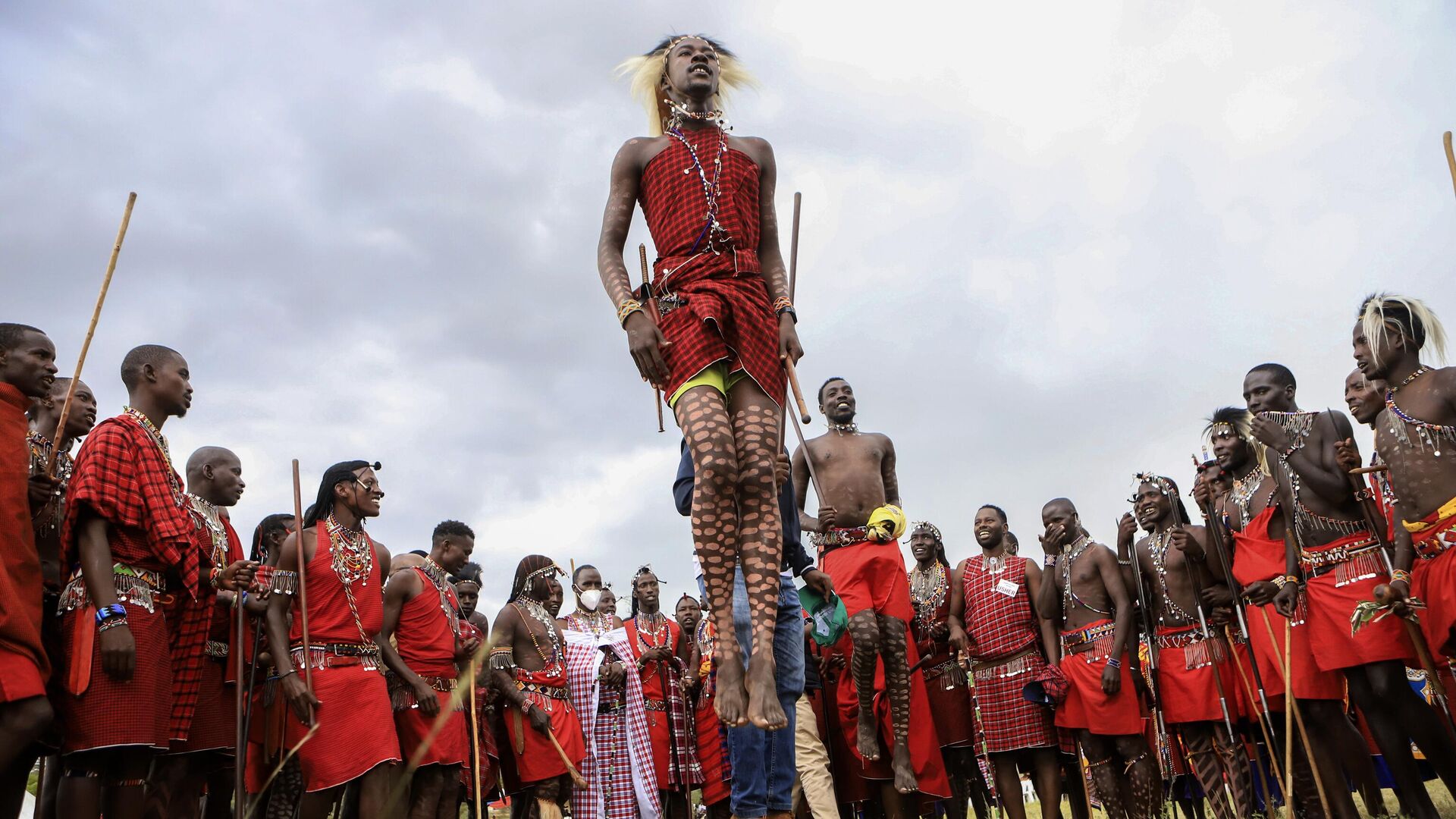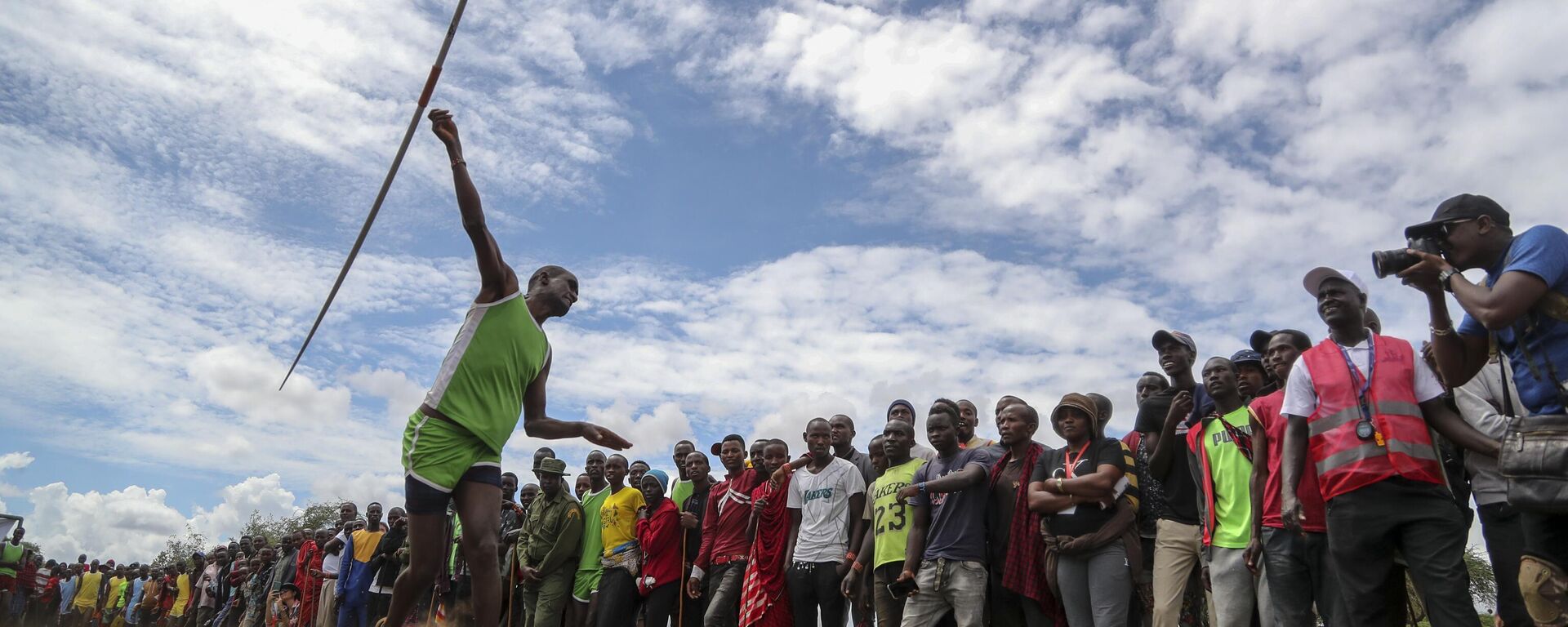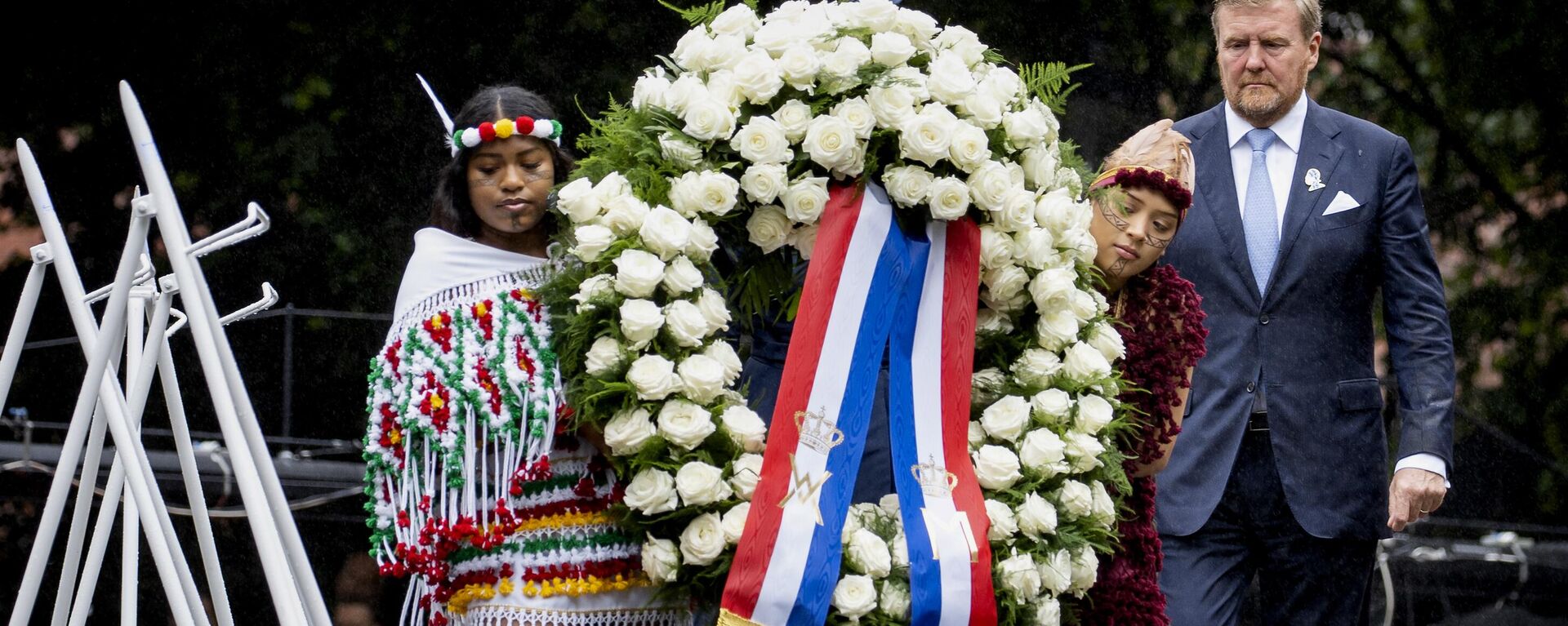https://en.sputniknews.africa/20230705/oxford-uni-donates-cows-to-kenyan-and-tanzanian-maasai-families-over-extracted-colonial-artifacts-1060350857.html
Oxford Uni Compensates Kenyan & Tanzanian Maasai Families With Cows For Stolen Artifacts
Oxford Uni Compensates Kenyan & Tanzanian Maasai Families With Cows For Stolen Artifacts
Sputnik Africa
Museums in Western nations, including the UK, are facing growing demands to return cultural artifacts that were acquired during the colonial era to their... 05.07.2023, Sputnik Africa
2023-07-05T14:39+0200
2023-07-05T14:39+0200
2023-07-16T18:53+0200
sub-saharan africa
east africa
kenya
united kingdom (uk)
artifact
british colonialism
colonialism
reparations
culture
https://cdn1.img.sputniknews.africa/img/07e7/07/05/1060352305_0:0:3072:1728_1920x0_80_0_0_bf4e8019dc9dac981f58bfa7ec475b2f.jpg
Oxford University has offered cows to Maasai families in Kenya and Tanzania as supposed compensation for a number of cultural artifacts extracted and taken to Britain over a century ago.The Pitt Rivers Museum, on behalf of the University of Oxford, presented the Sululu and Mpaima families with 49 cows each, while the Saiyalels and Mosekas families received the same number as compensation.This followed the discovery of a substantial collection of Maasai artifacts at the Pitt Rivers Museum in 2017 by a Kenyan man named Samuel Sankiriaki, who subsequently initiated a petition for their repatriation.According to Laura Van Broekhoven, the director of museum studies at Oxford, out of the 148 Maasai artifacts in their possession from the colonial era, only five were wrongfully acquired. She did not mentioned returning these artifacts to the respective tribes.However, during a ceremony in Narok County, Kenya, Brookhaven explained that the provision of 49 cows to each affected Maasai family aligns with their customary practices and traditions.But according to Patrick Ntutu, the governor of Narok County, the owners of the items "were either killed or maimed before the ornaments were taken away from them."Meanwhile, the Maasai families expressed their gratitude for the university's gesture but maintained that it fell short of adequate compensation. Seka ole Sululu, a spokesperson for the families, told The Nation newspaper that they were still waiting for a more fitting compensation.Kenyan officials are also lobbying Oxford University to establish a campus in the Loita area of the southern Great Rift Valley, north of the Maasai Mara, and to provide full scholarships to outstanding students as another form of reparations.The Maasai people reside in southern Kenya and northern Tanzania, distinguishing themselves through their unique cultural traditions and extensive history.
https://en.sputniknews.africa/20221211/1060349646.html
https://en.sputniknews.africa/20230702/dutch-king-makes-historic-apology-for-slavery-1060280691.html
east africa
kenya
united kingdom (uk)
Sputnik Africa
feedback@sputniknews.com
+74956456601
MIA „Rossiya Segodnya“
2023
Muhammad Nooh Osman
https://cdn1.img.sputniknews.africa/img/07e7/04/0a/1058467512_0:0:1280:1280_100x100_80_0_0_ec723833bcbfcaed2e21952965ad99e4.jpg
Muhammad Nooh Osman
https://cdn1.img.sputniknews.africa/img/07e7/04/0a/1058467512_0:0:1280:1280_100x100_80_0_0_ec723833bcbfcaed2e21952965ad99e4.jpg
News
en_EN
Sputnik Africa
feedback@sputniknews.com
+74956456601
MIA „Rossiya Segodnya“
Sputnik Africa
feedback@sputniknews.com
+74956456601
MIA „Rossiya Segodnya“
Muhammad Nooh Osman
https://cdn1.img.sputniknews.africa/img/07e7/04/0a/1058467512_0:0:1280:1280_100x100_80_0_0_ec723833bcbfcaed2e21952965ad99e4.jpg
east africa, kenya, united kingdom (uk), artifact, british colonialism, colonialism, reparations , culture
east africa, kenya, united kingdom (uk), artifact, british colonialism, colonialism, reparations , culture
Oxford Uni Compensates Kenyan & Tanzanian Maasai Families With Cows For Stolen Artifacts
14:39 05.07.2023 (Updated: 18:53 16.07.2023) Muhammad Nooh Osman
Writer/Editor
Museums in Western nations, including the UK, are facing growing demands to return cultural artifacts that were acquired during the colonial era to their rightful countries of origin. Ghana, Ethiopia, and Nigeria have all appealed to the British Museum for the return of colonial-era artifacts taken to Britain.
Oxford University has offered cows to
Maasai families in Kenya and Tanzania as supposed compensation for a number of cultural artifacts extracted and taken to Britain over a century ago.
The Pitt Rivers Museum, on behalf of the University of Oxford, presented the Sululu and Mpaima families with 49 cows each, while the Saiyalels and Mosekas families received the same number as compensation.
This followed the discovery of a substantial collection of Maasai artifacts at the Pitt Rivers Museum in 2017 by a Kenyan man named Samuel Sankiriaki, who subsequently initiated a petition for their repatriation.
Among the artifacts in question are notable pieces such as the Enkononkoi, a men's necklace traditionally worn by elders, the Emonyorit, a women's necklace, and an Isuritia, which is a special type of necklace.
According to Laura Van Broekhoven, the director of museum studies at Oxford, out of the 148 Maasai artifacts in their possession from the colonial era, only five were wrongfully acquired. She did not mentioned returning these artifacts to the respective tribes.
However, during a ceremony in Narok County, Kenya, Brookhaven explained that the provision of 49 cows to each
affected Maasai family aligns with their customary practices and traditions.
"Many of them [the artifacts] were gifted and are okay, but some are problematic because they were never supposed to have been in the museum, and records about them were not clear on how they landed there," she said, according to Kenya's K24 TV.
But according to Patrick Ntutu, the governor of Narok County, the owners of the items "were either killed or maimed before the ornaments were taken away from them."
Meanwhile, the Maasai families expressed their gratitude for the university's gesture but maintained that it fell short of adequate compensation. Seka ole Sululu, a spokesperson for the families, told The Nation newspaper that they were still waiting for a more fitting
compensation.
"We could have chosen to sue but we chose the traditional way as we believe in reconciliation," ole Sululu said.
Kenyan officials are also lobbying Oxford University to establish a campus in the Loita area of the southern Great Rift Valley, north of the Maasai Mara, and to provide full scholarships to outstanding students as another form of reparations.
The Maasai people reside in southern Kenya and northern Tanzania, distinguishing themselves through their unique cultural traditions and extensive history.




